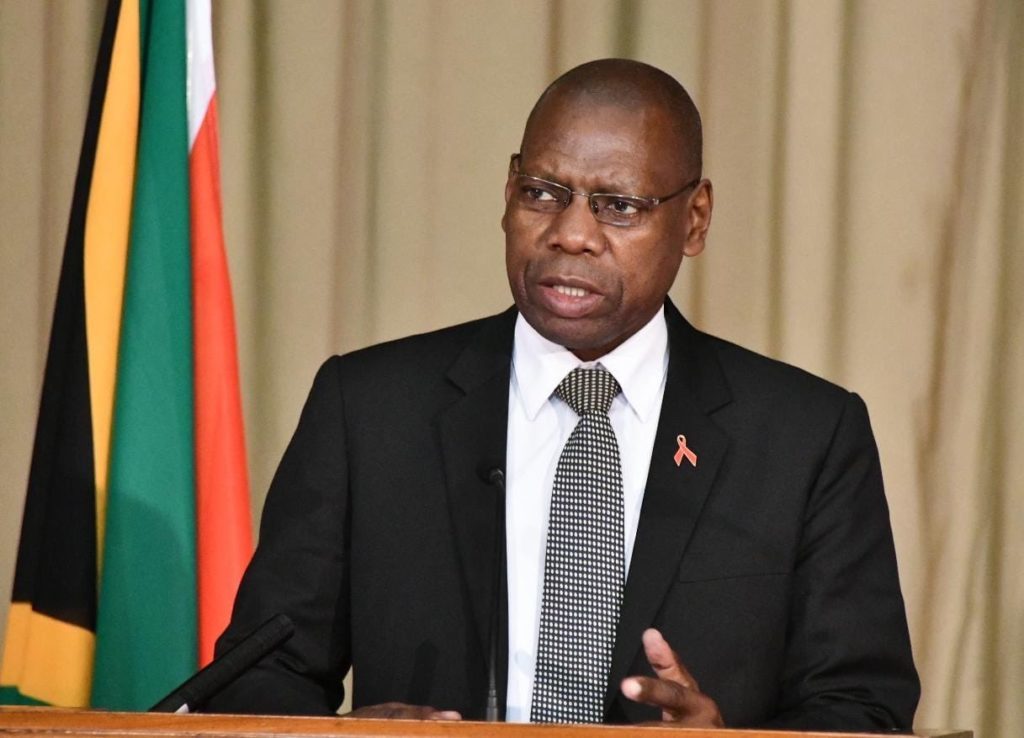A new COVID-19 variant with a higher viral load has become dominant in South Africa, announced Health Minister Zweli Mkhize in a public briefing on Friday [December 18]. A report suggests that this new variant is driving the second wave.
Mkhize said a genomics team, led by the Kwazulu-Natal Research Innovation and Sequencing Platform, or KRISP, has sequenced hundreds of samples from across the country since the beginning of the pandemic in March. They noticed that a particular variant has increasingly dominated the findings of the samples collected in the past two months.
Speaking during the briefing, epidemiologist and chair of the Ministerial Advisory Committee on COVID-19, Professor Salim Abdool Karim explained that the 501.V2 variant was first detected in Nelson Mandela Bay before spreading to the Garden Route and KwaZulu-Natal.
This new variant has three mutations, and has been detected in nearly 200 genomes collected in October and November. The higher viral load in swabs may translate to higher efficiency of transmission.
“When we look at this new variant, the CT score is lower than the other viruses that have been spreading during our first wave. It means that the amount of virus in the swab is higher. A lower score means a higher amount of virus: we refer to that as the viral load. When we do a swab, we are getting a lot more virus in these patients that have the 501.V2 virus,” he said.
“The higher viral load in these swabs may translate to a higher efficiency of transmission. If there’s higher transmissibility, it may translate to a higher R0 (the number of additional people one patient may infect). While the other viruses are still transmitting, this virus is spreading so much faster that when we take swabs it is the dominant variant that we see. This may translate into a second wave that may have many more cases than the first wave.”
This particular variant has been reported in other countries, including the UK, Australia and several others. In South Africa, between 80 and 90% of the virus is this 501.V2 mutant.”
“The evidence that has been collected therefore strongly suggests that the current second wave that we are experiencing is also, therefore, being driven by this new variant,” Mkhize said.
“We are seeing a much higher proportion of the new variant than the rest of the world. We don’t know where it originated. What we do know is that we first found it in Nelson Mandela Bay,” said Abdool Karim.
Mkhize added: “We knew it was coming but none of us expected for it to come as quickly as it did. There was no specific projection. It comes at a time when the behaviour over the festive season is likely to worsen the spread of the virus.
Mkhize says that although this mutation is a cause for concern, there is no reason to panic and it does not necessitate additional measures.
“There is no evidence to suggest a need to change in clinical treatment and patient management of COVID-19 in the second wave to date. This research underlines the need for all of us all to loyally adhere to the practice of non-pharmaceutical interventions which work as effectively in any pandemic of this nature including COVID-19 as we have known it and is just as effective to a mutant variant of the same virus.”
There will also be further research to ascertain if the current vaccines will be effective on the new variant.
Mkize concludes by saying that the future development of this mutation is now in the hands of citizens and how well we adhere to necessary behavioural changes such as mask wearing, hand washing, social distancing and sanitising. He especially appealed to the youth follow regulations more stringently.
“We cannot go through what we went through in the early days of the AIDS pandemic when mothers and grandmothers were burying their children- this is the most heartbreaking phenomenon. The youth is urged to take care and find alternative ways of having safe fun this festive season,” concluded Mkhize.
Picture: Twitter / Zweli Mkhize

